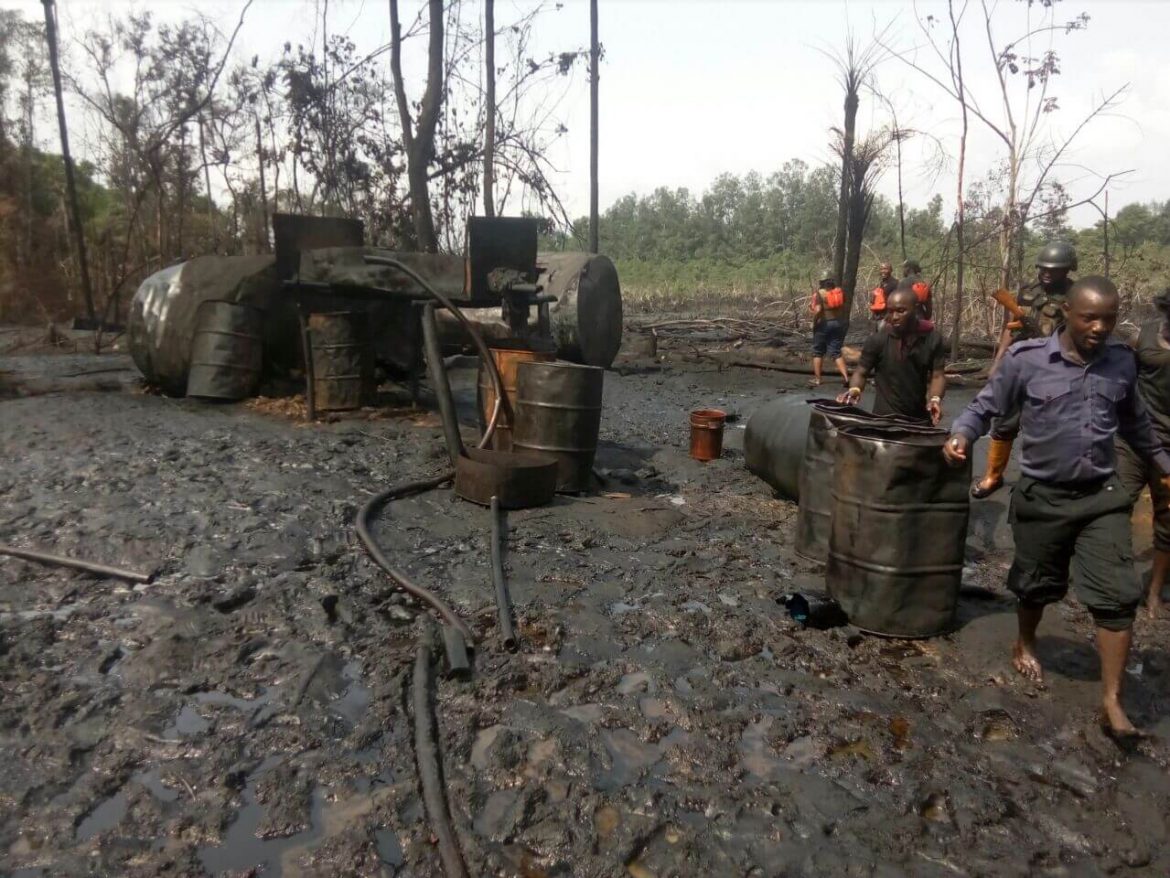806
By Daniel Adaji
Nigeria has lost an estimated 3,314 tankers of crude oil worth more than $48.49 billion to spillages since 2015.
This is according to Pointblanknews.com analysis of official records obtained from the National Oil Spill Detection and Response Agency (NOSDRA) and Central Bank of Nigeria (CBN).
The losses, captured between 2010 and 2024, amount to 662,741.246 barrels of crude oil, or 104.7 million litres.
At the Central Bank of Nigeria’s July 2025 crude oil reference price of $73.18 per barrel, this translates into an economic value of $48,499,404,382.28.
The open source statistics revealed 15,414 oil spill incidents across Nigeria during the period. Of these, 2,132 sites were never visited by a Joint Investigation Team (JIT) the standard mechanism for verifying, documenting, and addressing spill incidents. The absence of investigations raises major accountability concerns, leaving many spill cases unresolved and their impact unmitigated.
It added that, oil companies involved in about 5,544 incidents, failed to provide any estimate of the quantity spilled. This lack of transparency, NOSDRA added, makes it difficult to assess the full scale of crude lost or to design effective remediation strategies.
NOSDRA further classified 53 incidents as major oil spills, each involving either over 250 barrels discharged into inland waters or more than 2,500 barrels released onto land, swamps, shorelines, and the open sea. Another 374 spills were categorised as medium-scale, while 5,930 cases could not be categorised due to incomplete or missing information.
Oil remains Nigeria’s single largest source of foreign exchange, accounting for about 70 per cent of government revenue and 90 per cent of export earnings. The loss of more than $48 billion to oil spills over 14 years represents not just wasted revenue but also foregone opportunities for development in infrastructure, healthcare, and education.
But the financial losses tell only part of the story. The environmental toll of these spills has been devastating, particularly in the oil-producing Niger Delta region. Communities dependent on farming and fishing have been the worst hit, as spills contaminate farmlands, pollute rivers, and destroy aquatic life.
Experts argue that the recurring incidents are a symptom of systemic failures. Weak regulatory enforcement, vandalism, oil theft, and aging infrastructure continue to undermine efforts to safeguard the environment. In many cases, remediation has been slow or non-existent, leaving affected communities trapped in cycles of poverty and ecological degradation.
Environmental rights advocates have repeatedly accused oil companies of failing to take responsibility for the damage caused. They point to the high number of incidents without quantity estimates and unvisited spill sites as evidence of lax oversight and weak enforcement.
Amnesty International and Friends of the Earth, have in the past highlighted Nigeria’s oil spill record as among the worst in the world. They argue that without stronger laws and stricter enforcement, the cycle of losses—both economic and environmental—will persist.
”Over five decades, oil and gas extraction have caused large-scale, continued contamination of the water and soil in Ogoni communities. The continued and systematic failure of oil companies and government to clean up have left hundreds of thousands of Ogoni people facing serious health risks, struggling to access safe drinking water, and unable to earn a living,” Amnesty International stated in a recent report.
Mark Dummett, Business and Human Rights Researcher at the watchdog organisation added: “Shell and Eni claim they are doing everything they can to prevent oil spills but Decoders’ research suggests otherwise. They found that the companies often ignore reports of oil spills for months on end – on one occasion Eni took more than a year to respond. The Niger Delta is one of the most polluted places on earth and it beggars belief that the companies responsible are still displaying this level of negligence.”
The Nigerian government has pledged several times to hold operators accountable and clean up affected communities. A flagship example is the Hydrocarbon Pollution Remediation Project (HYPREP), which was launched to clean Ogoniland following decades of spills. Yet, progress has been slow, with communities frequently accusing both government and companies of neglect.



